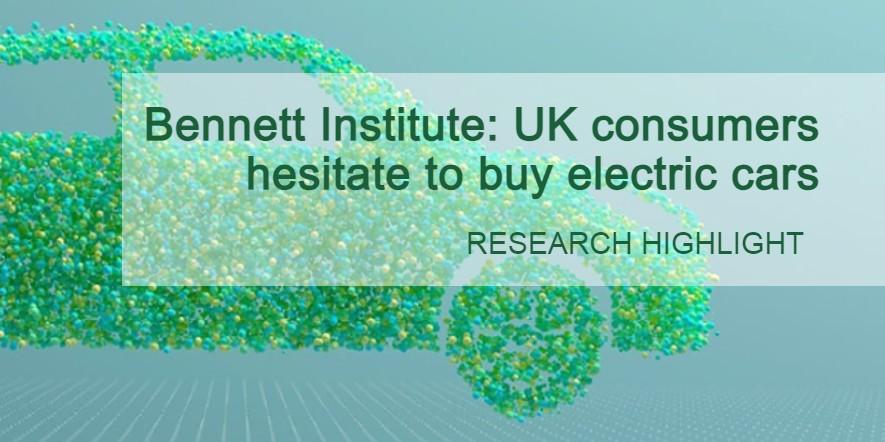
To achieve the national target of net-zero CO2 emissions by 2050, the UK will have to transition from fossil fuel cars to greener alternative fuel vehicles. However, despite electric vehicle sales increasing significantly over the past decade, their overall share in the market remains low. Filip Mandys and Shivani Taneja (Bennett Institute for Public Policy) research the key factors affecting the demand for green rather than fossil fuel cars, finding that UK consumers are unwilling to pay a premium for electric vehicles.
According to the Department for Transport, the transport sector represents the largest emitter of greenhouse gas emissions in the UK. The sector alone accounted for about 26% of total emissions in 2021, with automobiles contributing significantly to this figure and thus to climate change. In the UK alone, the economic costs of climate change are expected to reach about 1.5% of GDP per year by 2045, even if the goals of the 2015 Paris Agreement are met.
As the UK has one of the largest car markets in the world (third in Europe, seventh in the world, in terms of sales), it is crucial for the market to transition to greener alternative fuel vehicles (AFVs). As a contribution to the goal of reaching net zero emissions by 2050, the UK government announced a ban on the sale of all new petrol and diesel cars by 2035. Over the past decade, several government policies have also aimed to speed up the switch to AFVs. A primary example was the Plug-in Car Grant, which reduced the cost of buying low-emission vehicles. The grant gave consumers a 25% discount on the purchase price of up to ₤5,000 if they met certain criteria. Similarly, consumers were also encouraged to switch to AFVs through a lower car tax (Vehicle Excise Duty). These policies have contributed to an eightfold increase in the sales of AFVs over the last decade, with the number of available car models growing from only two to 29.
Despite this however, a complete transition to green vehicles may be easier said than done. For consumers, travelling by car has the advantage of privacy, comfort, and affordability, with automobiles also being a symbol of status for many. Buyers who are more conscious about their status may prefer large, conventional fossil fuel vehicles, over the greener options – sport utility vehicles (SUVs) accounted for about 60% of new car sales in 2023.
In the Bennett Institute for Punlic Policy, latest research paper, “Demand for green and fossil fuel automobiles”, researchers examine how the drivers of demand differ between fossil fuel and clean vehicles, and whether UK consumers are willing to pay a premium to get a car that is better for the environment. The research focuses on the 2008–2019 period – a time which saw a rapid rise in AFV sales and ended just before the COVID-19 pandemic. During this period, UK cars experienced major improvements in quality, where even fossil fuel vehicles became considerably cleaner.
Read the full Bennett Institute for Public Policy full article here.
Read the research paper: Demand for Green and Fossil Fuel Automobiles, Filip Mandys & Shivani Taneja, ScienceDirect (October 2024)
Image credit: Roadlight

